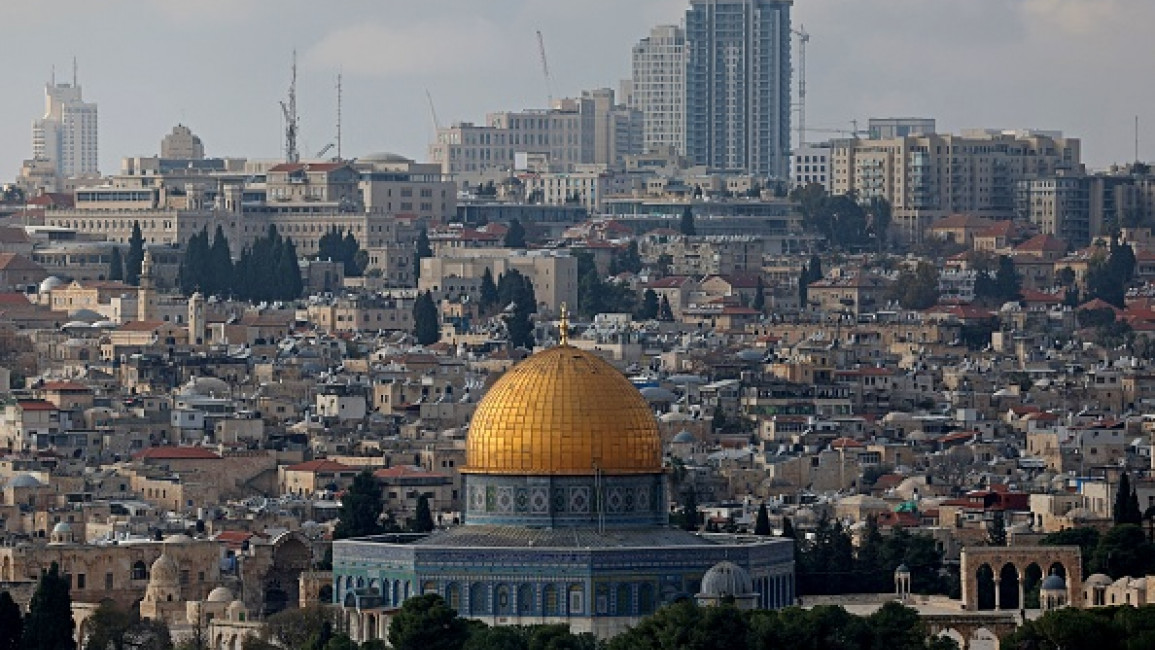Palestinians slam Saudi-Israel normalisation as talks gain momentum
Palestinians have spoken out against a potential normalisation deal between Saudi Arabia and Israel, as talks between the two states gain momentum.
The agreement hinges on several issues, including Israel's willingness to make significant concessions to the Palestinians - a demand put forth by both the United States and Saudi Arabia.
On Tuesday, Saudi Arabia's ambassador to Jordan and Palestine arrived in Ramallah and formally presented his credentials as ambassador extraordinaire and a non-resident Consul-General in Jerusalem.
Naif Ben Bandar al-Sudeiri met with Palestinian Authority (PA) President Mahmoud Abbas and Foreign Minister Riyad al-Maliki on a visit called "historic".
The PA has interpreted the Saudi diplomat's visit as a message of support and an indication that any normalisation deal would not come at the expense of the Palestinians.
Officials in Ramallah hope a Saudi-Israel deal will deliver substantial benefits, including concessions from the Israelis. However, there are serious doubts that Israel will abandon its settlement programme or agree to a viable independent state.
The UAE and Bahrain formalised ties with Israel in 2020 in what became known as the Abraham Accords. Sudan and Morocco followed suit.
As the Saudi delegation visited Ramallah, Israel announced that Tourism Minister Haim Katz is visiting Saudi Arabia—the first high-level public visit to the Kingdom as part of ongoing talks to establish formal diplomatic relations.
'Normalisation harms us'
Yacoub Abu Asab, a Palestinian resident of occupied East Jerusalem, flatly rejected normalisation between Israel and Saudi Arabia or any other Arab country.
"We, the Palestinians of al-Quds (Jerusalem), reject normalisation regardless of the party that goes with it. Normalisation harms and offends our cause especially the cause of al-Quds and al-Aqsa," Abu Asab told The New Arab.
Israel previously jailed Abu Asab on suspicion of being a leading Hamas member in occupied East Jerusalem. The Israeli police also barred him from entering the al-Aqsa Mosque, the Old City, and other areas of East Jerusalem. The ban order was recently lifted.
"It's even more painful when it comes from a party that protects Muslims. We hope the Saudi Ambassador visit is in the framework of supporting the Palestinian people and not as a prelude to start relations with Israeli occupation," he said.
أهلا وسهلا بك في بلدك فلسطين 🇵🇸🇸🇦@naif63_2 @KSAMOFA pic.twitter.com/kcvAEYRHSh
— State of Palestine - MFA 🇵🇸🇵🇸 (@pmofa) September 26, 2023
Ismail Maslamani, also a resident of occupied East Jerusalem, told The New Arab that most Palestinians would consider such a deal "as a stab to the Palestinian cause".
"[Normalisation] would allow relations between Saudi and Israel before the creation of a Palestinian State. It would allow Israel to carry on with its belligerence. It would delay the [creation] of the Palestinian state," Maslamani said.



